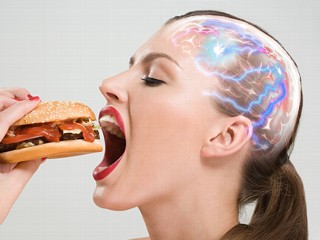Your diet could be working wonders for your body, but it might be reeking havoc on your brain.
A new recent study out of Harvard University found that people who are actively dieting sometimes don't have the mental capacity of their colleagues who are not dieting.
The diminished ability to problem-solve and think critically isn't related to a lack of vitamins, minerals or protein. Instead, it's the direct result of simply having too much on your mind, according to researchers.

Think about it: If you're worried about what you want to eat, can't eat or should eat, you are less focused on the task at hand, whatever that may be.
For example, if you're on a diet and have a late afternoon meeting during which one of your colleagues unveils a plate of cookies or a bag of candy for the group–you know, just to get the creativity flowing–what are you more likely to be thinking about? Problem solving? Strategy? Or how to resist the plate of delicious snacks being passed around.
That's right, you're going to be focused on the treats.
And even if there is no plate of cookies or bag of candy, people who are dieting still have plenty of other things on their mind–cravings, self-control, their next snack or meal, for example.
All of these issues, according to the researchers, take up a lot of mental "bandwidth." And people only have so much mental bandwidth to dedicate to their daily challenges. When a person is thinking about food–the good, the bad, all the food they want to have but can't–they simply don't have the ability to dedicate time, energy and thought to other issues.
Hence, the researchers concluded that people on diets are not as well-equipped to think strategically and make the most of their cognitive abilities than those who are not dieting.
So what to do?
The simple answer is to quit dieting, but that's unrealistic. The best answer is to find a diet that truly works for you–and your brain. One that isn't too strict, is kind of fun and that works.





